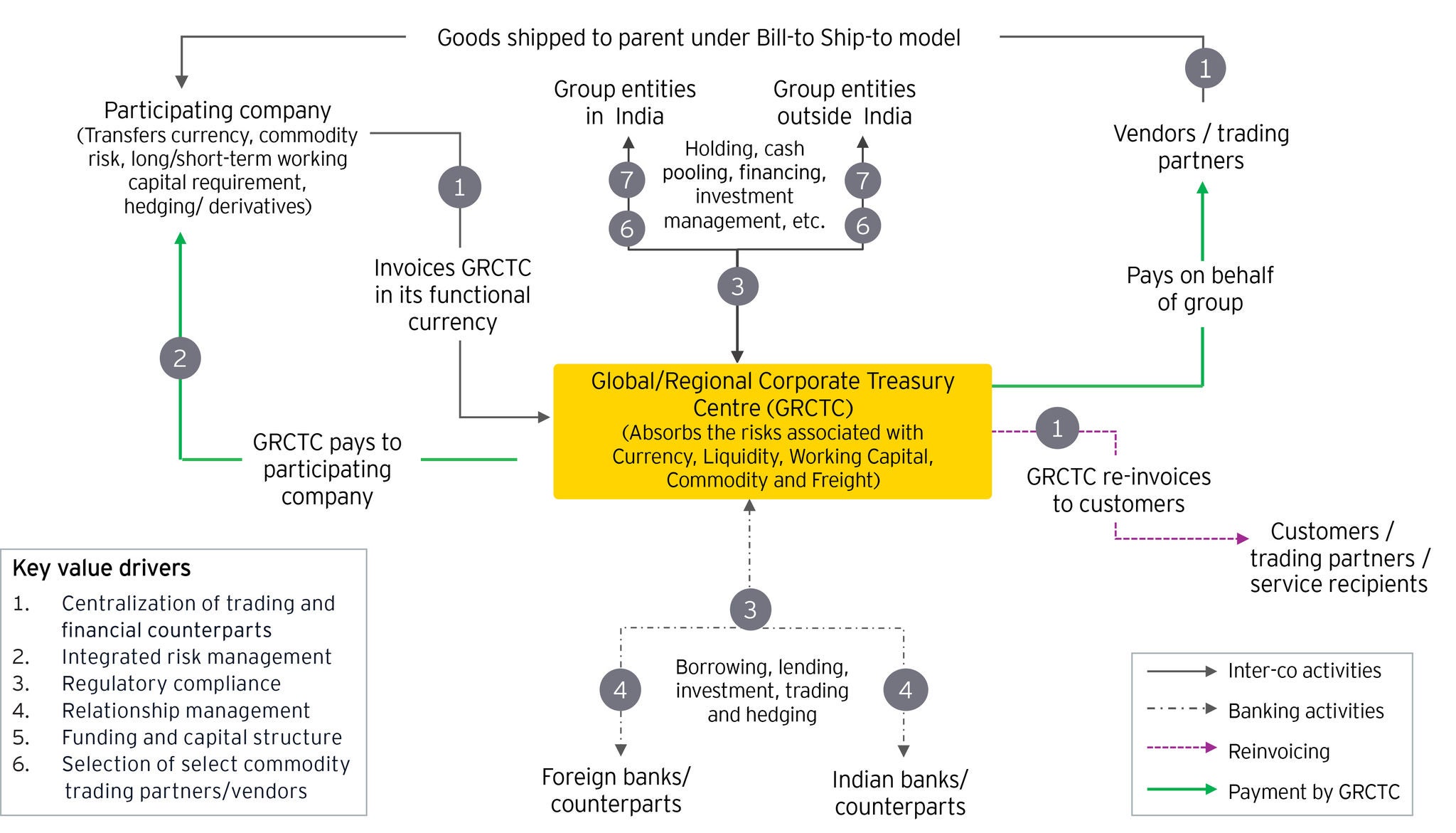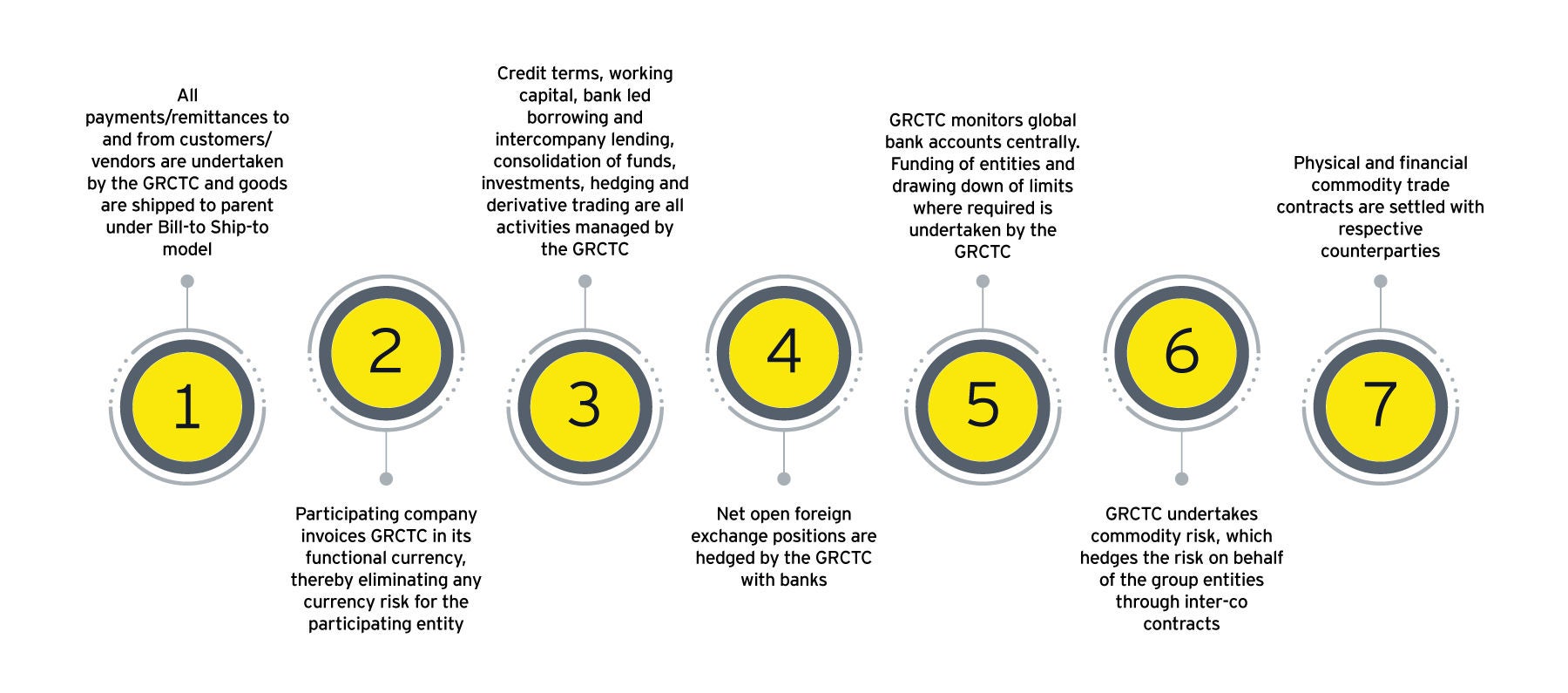Spotlight on India: Gujarat International Finance Tec-City (GIFT City) and International Financial Services Centre (IFSC)
GIFT City was established as a smart city with a clear goal: to offer a wide range of financial services—like banking, insurance, capital markets, and asset management—through an International Financial Services Centre (IFSC). These services are designed for entities seeking to transact in foreign currencies rather than Indian Rupees.
In support of the GRCTC initiative, the IFSC unveiled a comprehensive framework titled, "Global/Regional Corporate Treasury Centre Activities by Finance Company/Finance Unit,"3 in June 2021, listing the permissible treasury activities and services for FX risk management, cash management, fundraising, intra-group financing, and trading in commodity derivatives.
Following the release of the GRCTC framework by IFSCA, the setup of regional treasury centers in GIFT City has been a key point of interest for many companies. To facilitate this, the IFSCA issued a consultation paper proposing revisions to the current framework. It sought feedback, insights, comments, and suggestions from the public, market participants, and stakeholders regarding the existing guidelines and framework.
To drive greater business participation, further clarification and simplification of permissible treasury activities in GIFT City are necessary. These updates would help organizations evaluate how to set up full-fledged trading entities and treasury operations. Key drivers include:
1. Procurement, export and trading activities: The revised guidelines (dated 4th April 2025) offer clarity on the GRCTC’s role as a re-invoicing center. GRCTCs can now facilitate the financing of goods bought and sold on behalf of service recipients, supporting operations under a Bill-to-Ship-to model—subject to adherence with shipping laws and regulations.
2. Guidelines on commodity trading: A lack of clear regulations for Over-The-Counter (OTC) and physical commodity trading has restricted institutional investor participation. A formal regulatory framework will help integrate India more deeply into global trade.
3. Cash pooling activities: While cash pooling is permitted by the IFSCA, cash pooling guidelines can be enhanced to explicitly cover physical, notional, and cross-currency pooling structures.
4. Currency, commodity and interest rate hedging: The revised guidelines (dated 4th April 2025) clarify that OTC derivatives can be transacted with both internal and external counterparties. However, comprehensive regulations for hedging commodities—both OTC and exchange-traded—are still required.
5. Freight hedging: Just as Foreign Exchange (FX) and commodity hedging, businesses have emphasized the importance of freight hedging to become a permitted activity, along with uniform guidelines. Currently, many global firms conduct this from hubs like Dubai and Singapore.
6. Trade credit and freight insurance counterparts: Establishment of trade credit and freight insurance companies in GIFT City is immensely important for corporations involved in factoring and supply chain financing activities. The presence of these counterparts enhances GIFT City’s appeal as a comprehensive financial ecosystem. Due to tax incentives, trade credit and freight insurers may offer competitive premiums, making it more affordable for businesses to secure insurance for factoring deals.
7. Trade finance solutions: GIFT City should offer a full suite of trade finance solutions—factoring, forfaiting, receivables finance, supply chain finance and invoice discounting—to strengthen its appeal.
GIFT City has the potential to rank among the world’s leading financial hubs for organizations looking to establish GRCTCs. With supportive regulations, growing infrastructure, and increasing industry interest, it offers multinational corporations an attractive new base for global treasury and commodity trading operations-signaling a promising future for India on the global financial stage.









